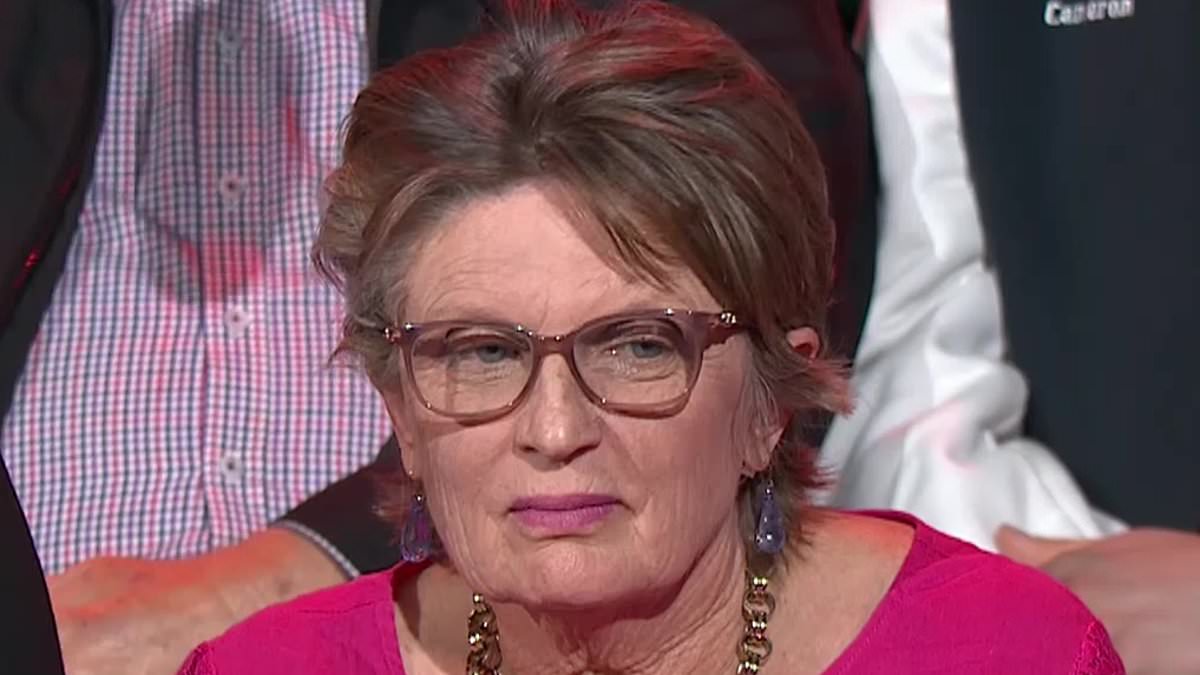A question about the benefits of ‘multiculturalism’ in has caused a stir on ABC’s Q+A program.
Audience member Jenny Carroll told the panel on Monday night that it was drummed into her children when they were at school in the 1990s that diversity is one of the nation’s greatest strengths.
However the mother-of-two said she believes those who have descended from European settlers are now being ‘demonised’ by people from other backgrounds.
‘My children, now almost 30 and 34, went to the local state public school and were dictated to that multiculturalism is a great thing,’ Ms Carroll said.
‘I don’t believe it is as I feel the culture of the original British and Irish majority has been demonised constantly for the last three decades.
‘Case in point – frequent vandalism of memorials to Captain Cook. How does democracy fit into this atmosphere of beat up the white guy?’
Host Patricia Karvelas immediately handed the question to federal youth minister Anne Aly – the first Muslim woman to be elected to federal parliament – which sparked tense laughter from the audience.
Ms Aly was born in Egypt and moved to with her parents as toddler.
She staunchly disagreed with Ms Carroll’s views on the controversial subject.
‘I know multiculturalism isn’t a thing. It’s what we are. It’s the character of our nation. And it’s not a policy that was forced on anyone,’ Ms Aly begun.
‘Take a look around you. We are multicultural. It’s who we are.’
Ms Aly drew on her experience as an immigrant growing up in to better explain her perspective to Ms Carroll.
‘I think multiculturalism has brought immense benefits,’ she said.
‘I’m not talking about being able to have some soy sauce on your sausage roll or being able to wear a sari or any of those things – I’m talking about democracy is more resilient and is better when there are diverse idea, diverse thinking, diversity of faith, diversity of cultural backgrounds.
‘I don’t think we bash the white guy as you might say, and perhaps if we were to trade places for a day you might think differently, because I get quite a bit of racism.
‘I think if we were to trade places and if we had the opportunity to walk in each other’s shoes, you might think differently.’
Former Liberal Senator George Brandis was the next panellist to address the question.
He regarded himself as a strong defender of multiculturalism during his time in parliament.
‘But I don’t think it’s an either or all question. I think we can accept that is a multicultural society,’ Mr Brandis explained.
‘It’s not of whether we should be. We are. That’s the reality and that’s not going to change.
‘So we want to be the best multicultural society that we can be.’
Mr Brandis pointed out that ‘s British heritage shouldn’t be disrespected either.
‘So many of the fundamental features of n society we owe to our British heritage and rather than be ashamed of that, we should be proud of that,’ he said.
‘I think we can see the good in all dimensions of n society.
‘To have reached the point we have now reached where we’re proud of our very, very ancient Indigenous heritage.
‘We’re proud of our more modern British institutions that go back to 1788 and we’re proud of the society that is evolved from those institutions that both sides of politics as a joint endeavour have created which is I think one of the world’s most successful multicultural societies.’
He told Ms Carroll that he doesn’t think that the antithesis implicit in her question really exist.
Ms Carroll clarified she didn’t believe migration was to blame for the her views, but instead a failure to make peace with ‘s complex colonial history.
‘It’s that we haven’t reconciled, maybe, to the Aborigines sufficiently,’ she said.
‘I think that might be underlying a lot of it, that we can’t really look at those types of heroes in our background and say, ‘Thank you for what you did’.
‘He was just doing a job, Captain James Cook, he was told to navigate and find the Great South land.
‘So if he is made to blame, I think that’s so wrong.’
Karvelas also weighed in while inviting English academic and podcaster David Runciman to share his views.
‘Obviously, this is a debate that’s being had worldwide in places that have been colonised,’ she said.
‘But there is a kind of rejection of it and there is a tension.’
